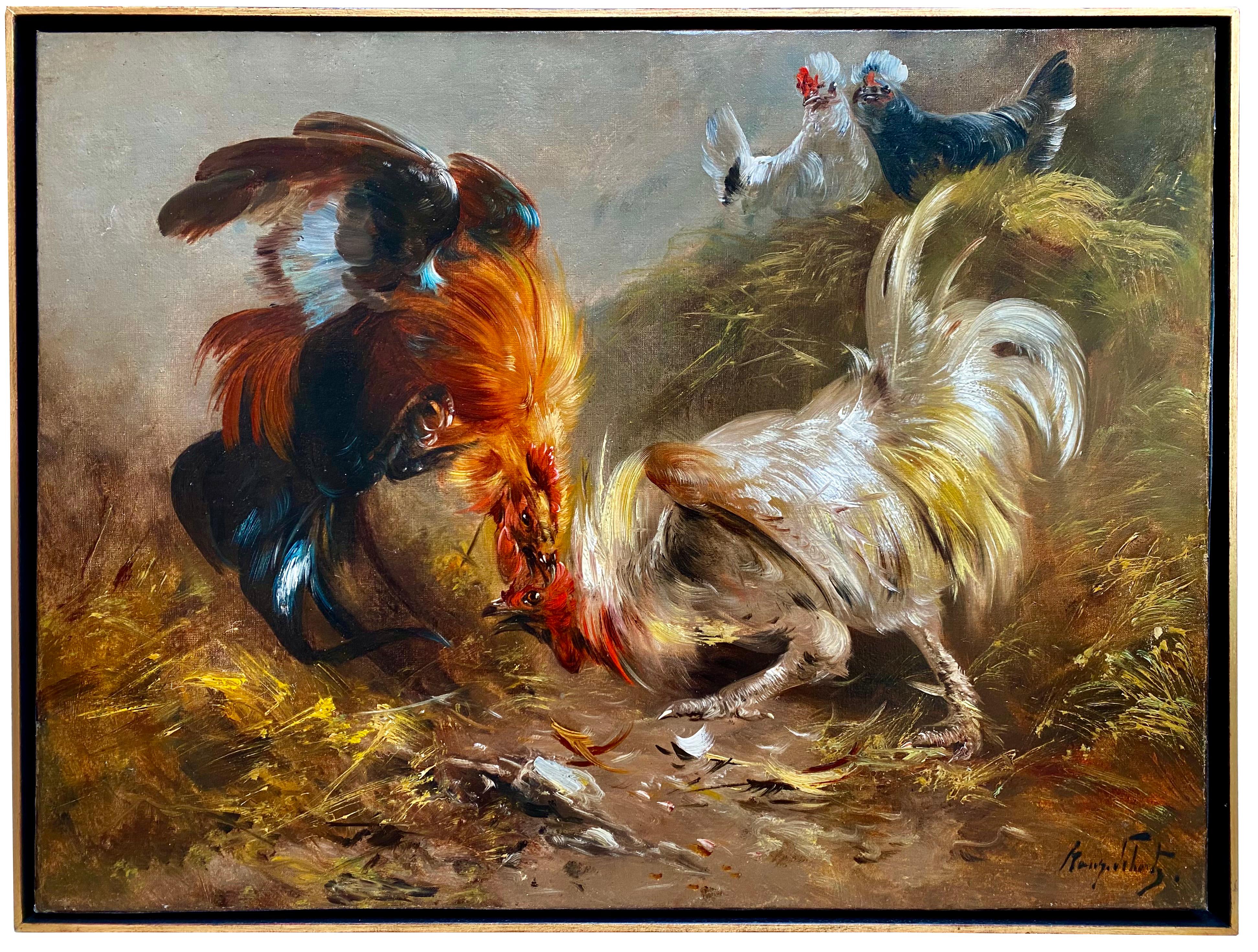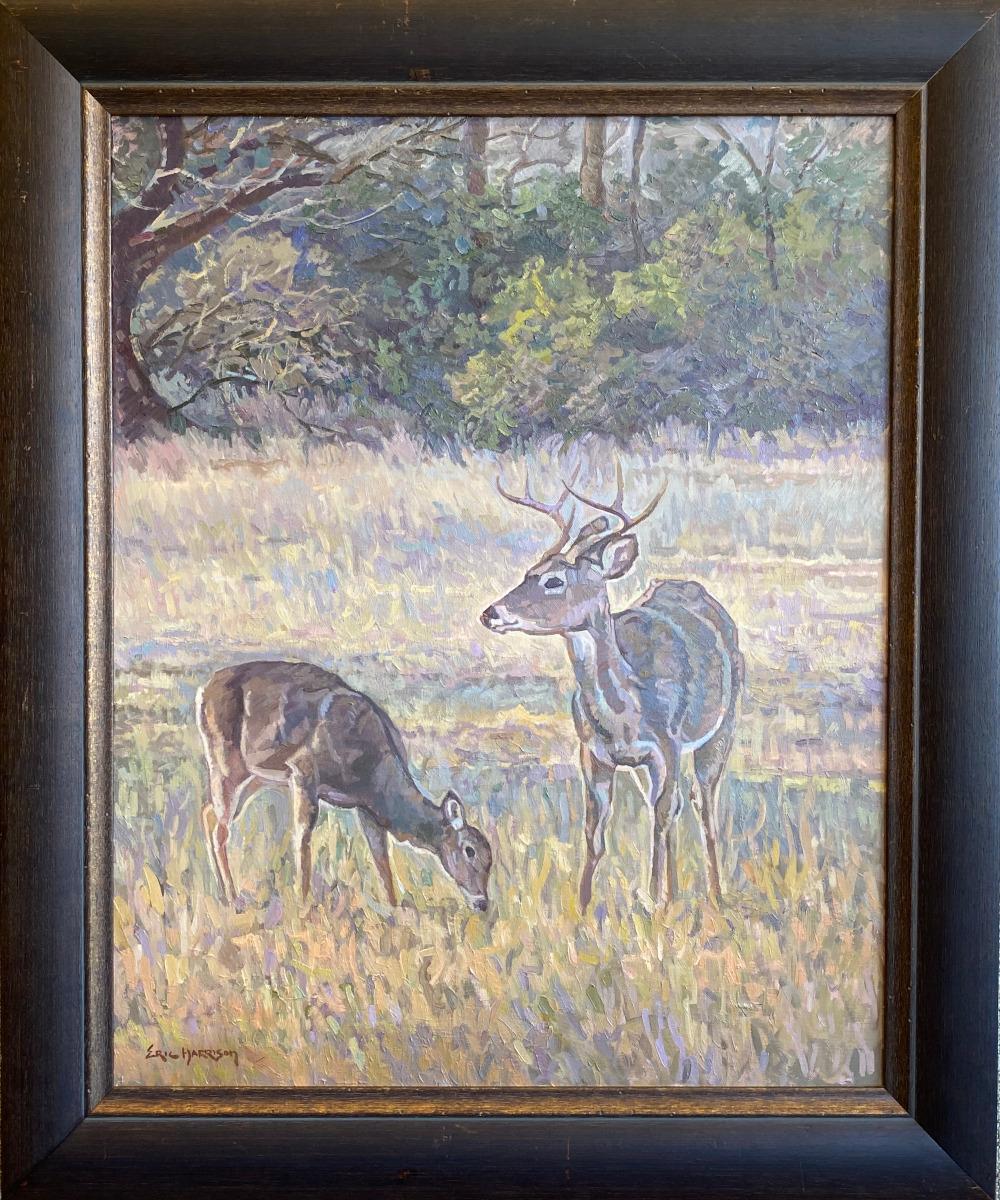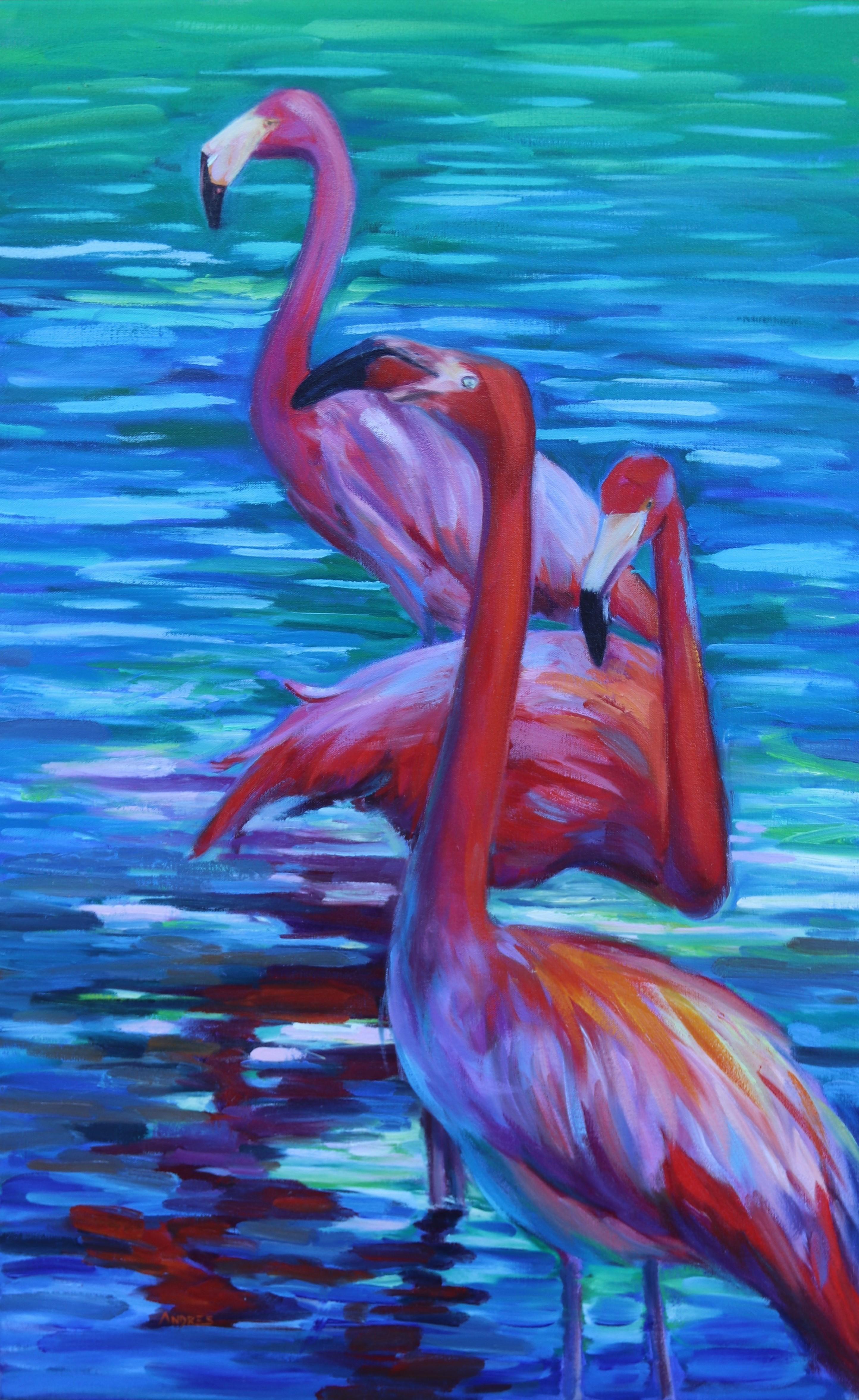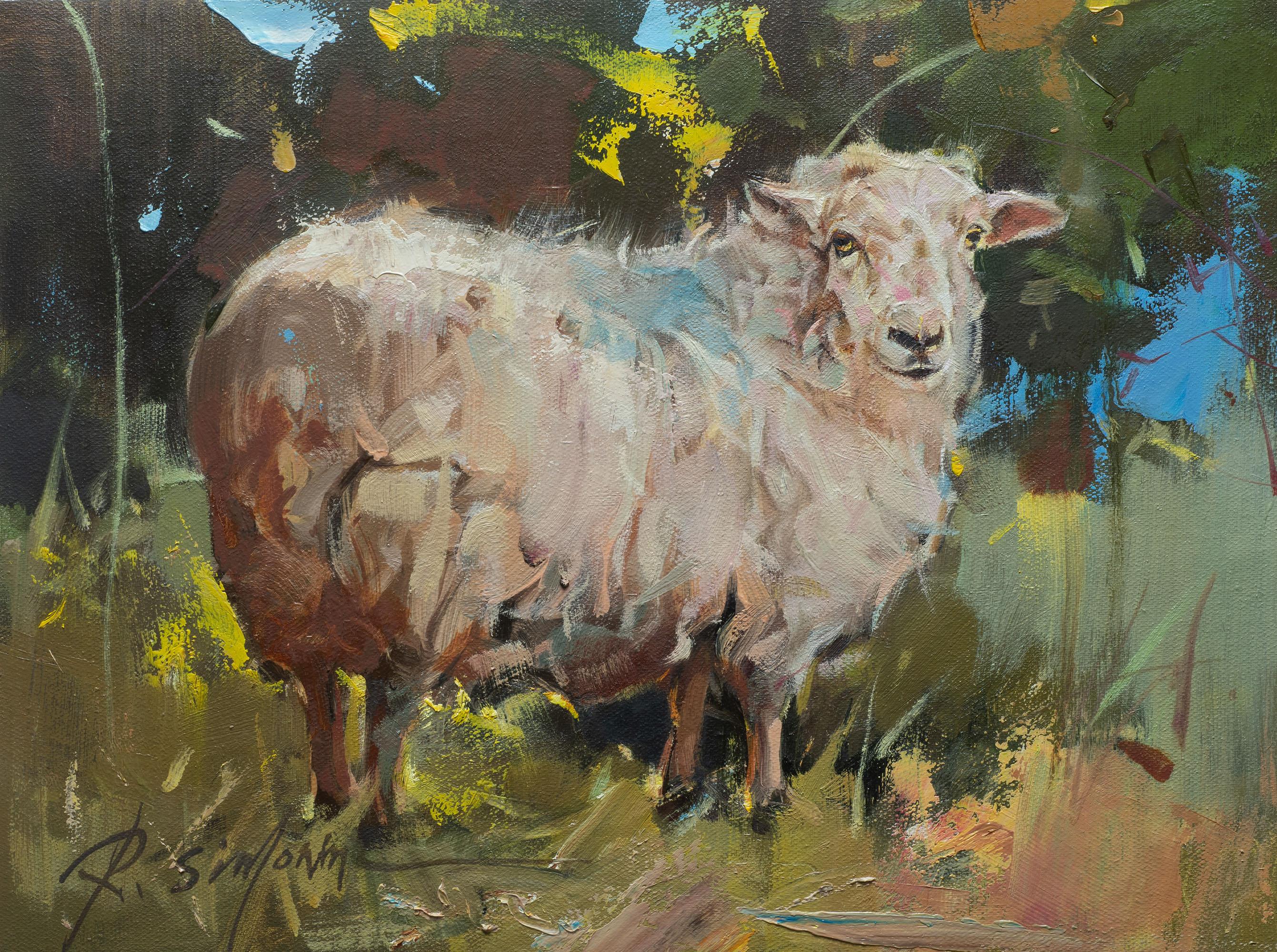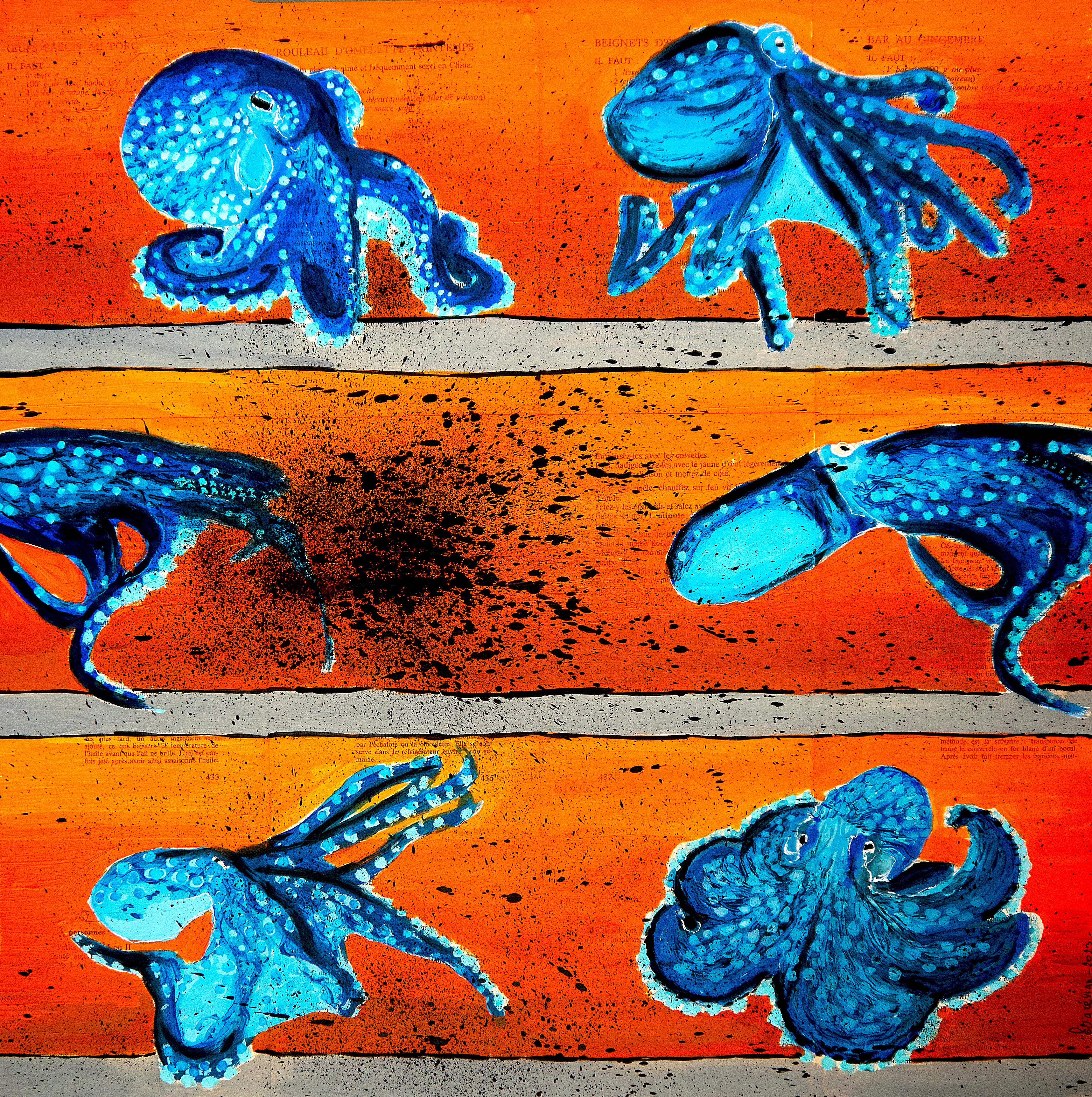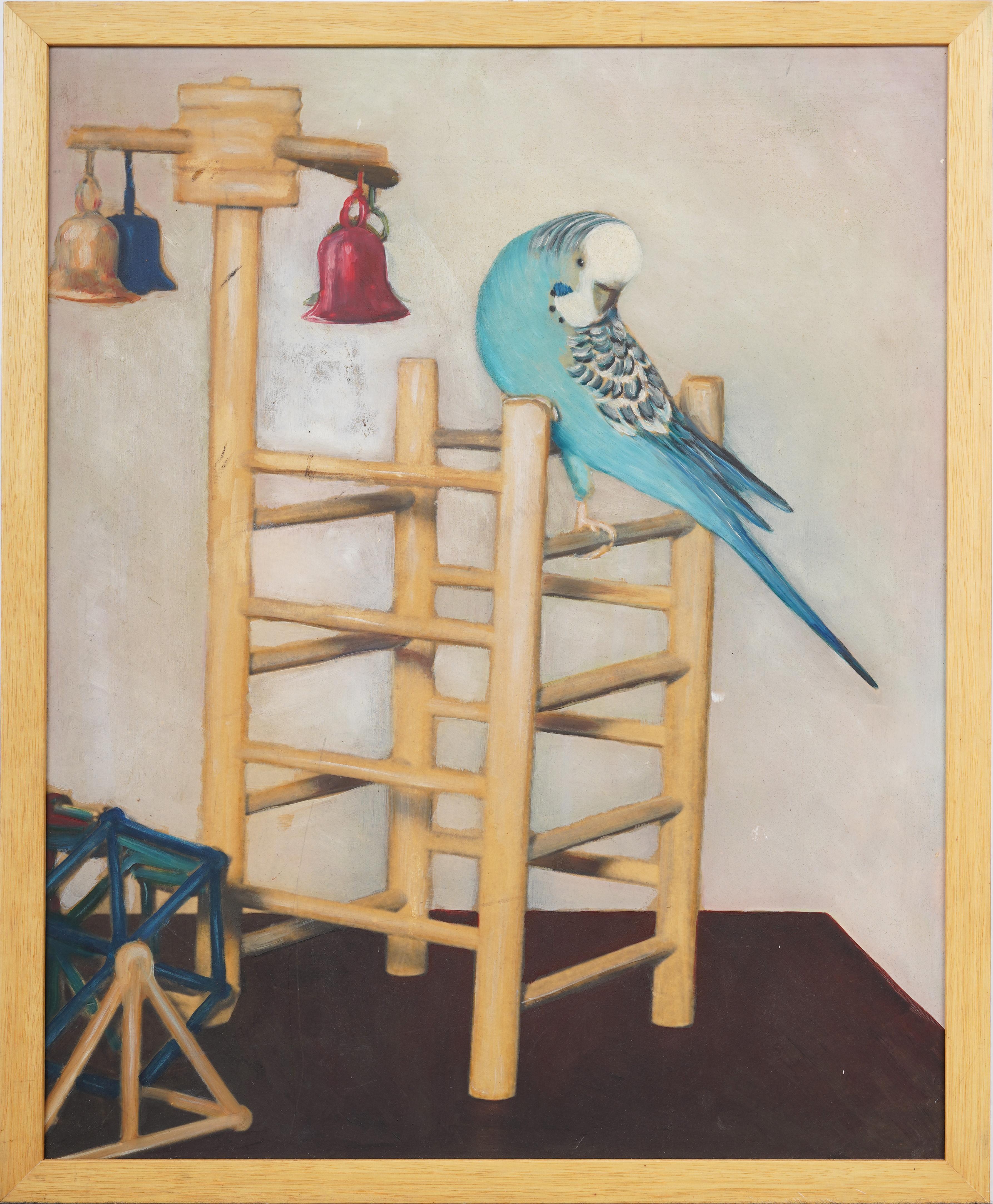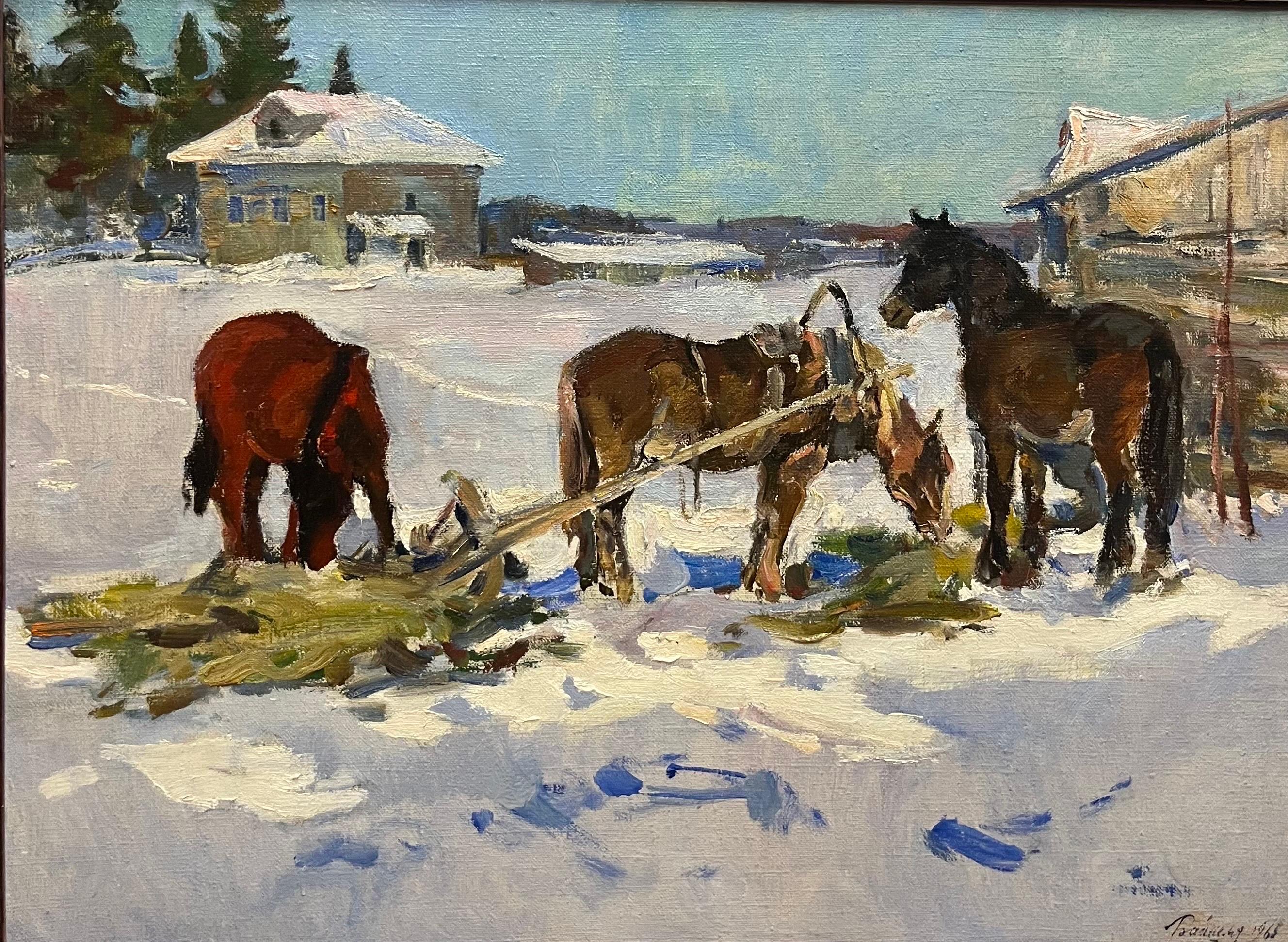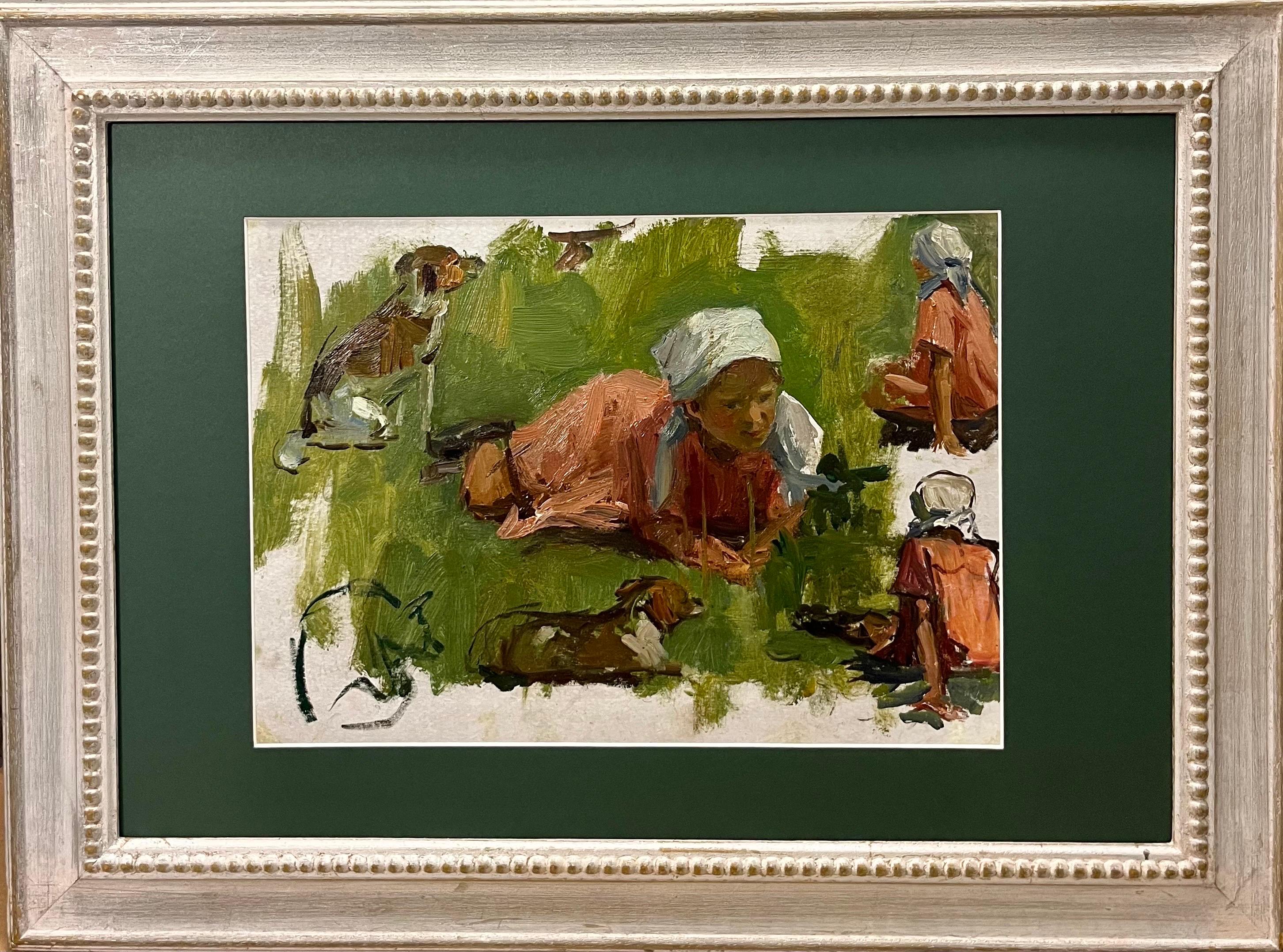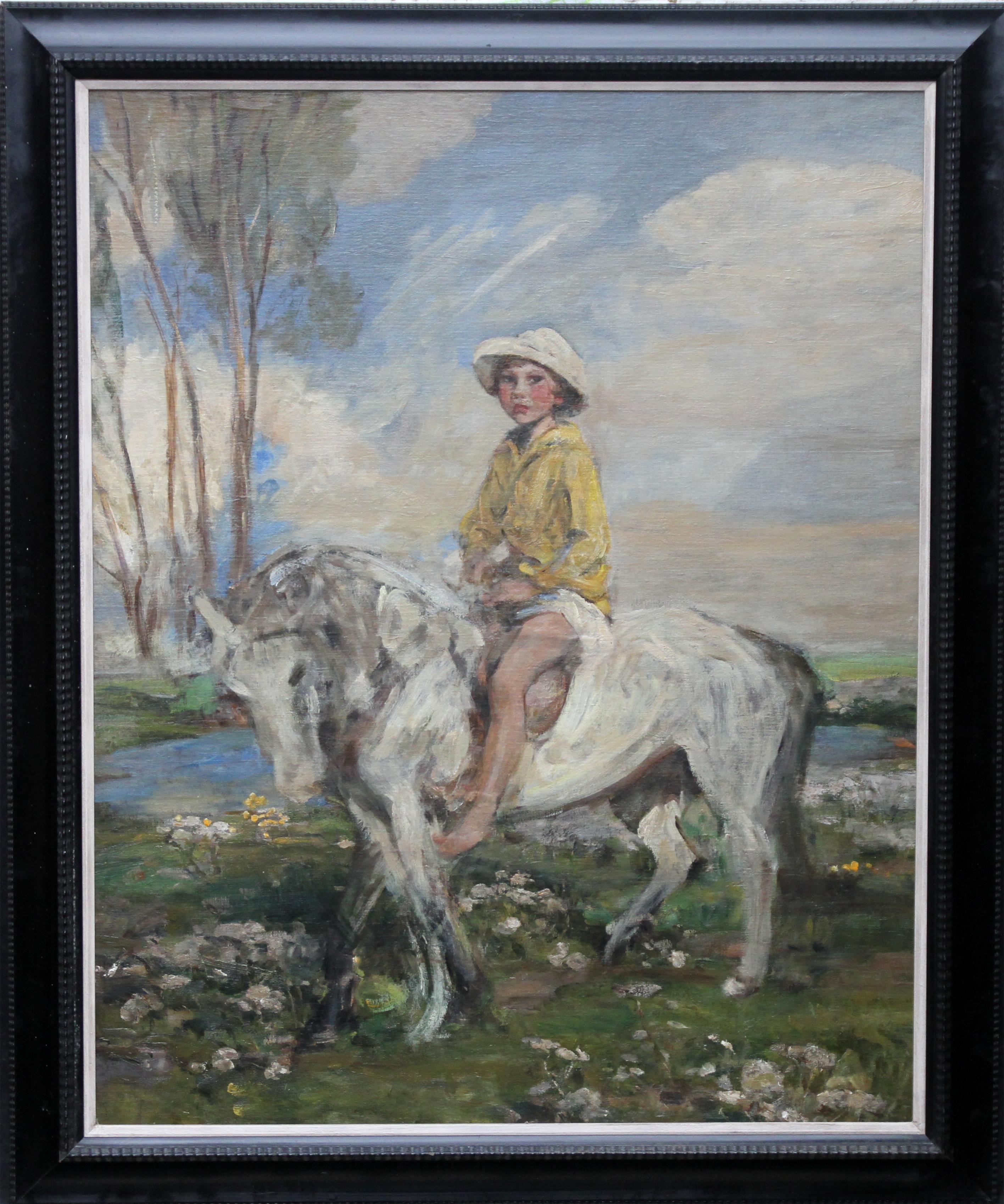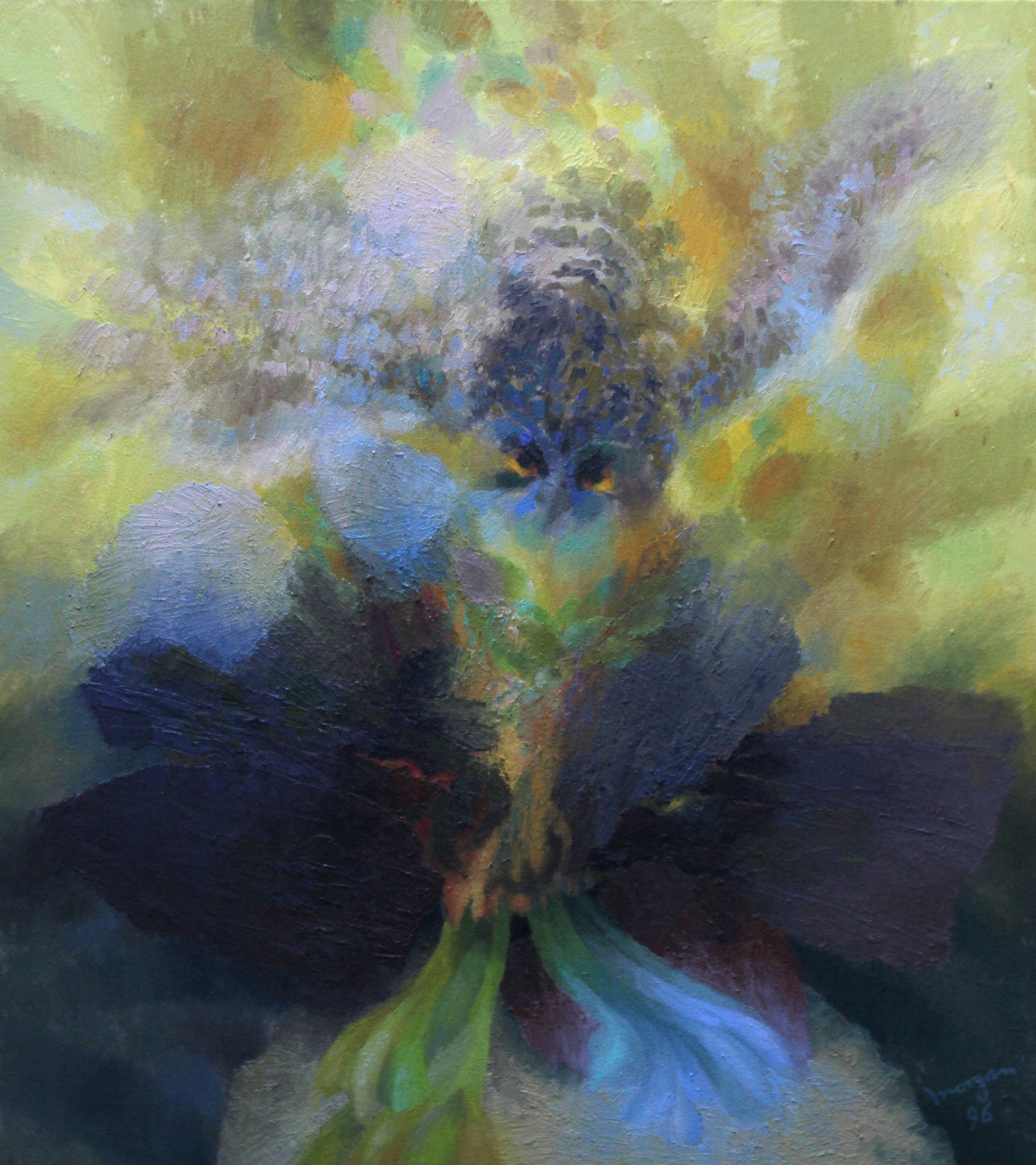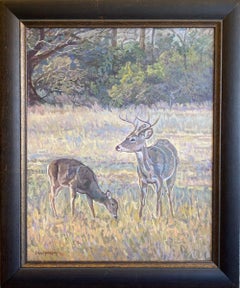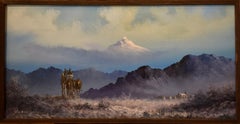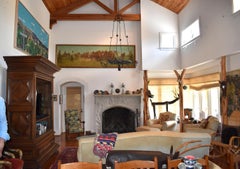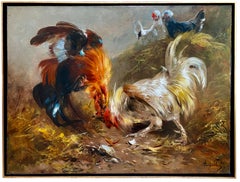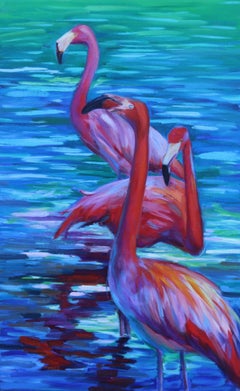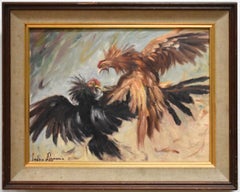
"Cock Fight" Oil on Board PEDRO LAZCANO DIED 1970
View Similar Items
Want more images or videos?
Request additional images or videos from the seller
1 of 7
Pedro Lazcano"Cock Fight" Oil on Board PEDRO LAZCANO DIED 1970
$2,500List Price
About the Item
- Creator:Pedro Lazcano (1909 - 1970, American)
- Dimensions:Height: 12 in (30.48 cm)Width: 16 in (40.64 cm)Depth: 3 in (7.62 cm)
- More Editions & Sizes:Size: 12 x 16 Frame: 16 x 20Price: $2,500
- Medium:
- Movement & Style:
- Period:
- Framing:Frame IncludedFraming Options Available
- Condition:Please visit my 1stdibs storefront for other Vintage, Mid Century & contemporary Texas paintings, sculpture, pottery and more.
- Gallery Location:San Antonio, TX
- Reference Number:1stDibs: LU769315018062
About the Seller
5.0
Vetted Professional Seller
Every seller passes strict standards for authenticity and reliability
Established in 1974
1stDibs seller since 2017
99 sales on 1stDibs
Typical response time: 1 hour
Authenticity Guarantee
In the unlikely event there’s an issue with an item’s authenticity, contact us within 1 year for a full refund. DetailsMoney-Back Guarantee
If your item is not as described, is damaged in transit, or does not arrive, contact us within 7 days for a full refund. Details24-Hour Cancellation
You have a 24-hour grace period in which to reconsider your purchase, with no questions asked.Vetted Professional Sellers
Our world-class sellers must adhere to strict standards for service and quality, maintaining the integrity of our listings.Price-Match Guarantee
If you find that a seller listed the same item for a lower price elsewhere, we’ll match it.Trusted Global Delivery
Our best-in-class carrier network provides specialized shipping options worldwide, including custom delivery.More From This Seller
View All"REHE IM MORGENLICHT" DEER IN MORNING LIGHT ERIC HARRISON FRAMED 36 X 30
By Eric Harrison
Located in San Antonio, TX
Eric Harrison
(Born 1971)
Texas Hill Country Artist
Image Size: 30 x 24
Frame Size: 36 x 30
Medium: Oil
2021
"Rehe im Morgenlicht" Deer in Morning Light
Bio & Artist Statement Eric H...
Category
2010s Impressionist Landscape Paintings
Materials
Oil
"RANCHERS REWARD" COWBOYS, HORSEBACK, FRAMED 41 X 59 G. HARVEY TEXAS ARTIST
By G. Harvey
Located in San Antonio, TX
G. Harvey (Gerald Harvey Jones)
(1933-2017)
San Antonio, Austin, and Fredericksburg Artist
Image Size: 30 x 48
Frame Size: 41 x 59
Medium: Oil
"Ranchers Reward"
Dated 1975
Mr. Geral...
Category
1970s Impressionist Landscape Paintings
Materials
Oil
"STAGECOACH TO NOWHERE" El Paso Artist WESTERN COWBOYS DESERT & MORE
By Lester Hughes
Located in San Antonio, TX
Lester Hughes
(1938-2021)
El Paso Artist
Image Size: 18 x 36
Frame Size: 20 x 38
Medium: Oil on Canvas
"Stagecoach To Nowhere"
Biography
Lester Hughes (1938-2021)
From El Paso, Texas...
Category
20th Century Impressionist Landscape Paintings
Materials
Oil
" The Littlefield Murals " 3 MURALS OF THE XIT RANCH IN TEXAS. PAINTED Ca. 1910
Located in San Antonio, TX
Major George Washington Littlefield died in 1920. He commissioned E. Martin Hennings around 1910 to do six large paintings of scenes from his 235,000-acre ( part of the XIT ) ranch to hang in his bank in Austin. I have included photos of the paintings hanging in the bank from the Littlefield Book.
I am not sure, but the bank possibly went under sometime in the 197s-1980s. All of the art and antiques were stored, and they had a sale. We have 3 of the six murals that were commissioned by Littlefield.
I have about 40 pages of info on Littlefield and the murals. Too much to enter now but I will be scanning that info later this week.
The Littlefield mansion is still in Downtown Austin. At one time he was the richest man in the state. He was UT's biggest donor for several years prior to his death.
The paintings are
34 x 130
35 x 144
35 x 119
Two are hanging in my friend's ranch house. The other is of a large herd of Hereford Cattle. It is actually pictured
on the cover of the Biography of George Washing Littlefield.
Littlefield, George Washington (1842–1920). George Washington Littlefield, cattleman, banker, and member of the Board of Regents of the University of Texas, son of Fleming and Mildred Terrell (Satterwhite) White Littlefield, was born in Panola County, Mississippi, on June 21, 1842. The family moved to Texas in 1850 after a confrontation between Fleming Littlefield and his wife's family. In marrying Fleming, her overseer, after the death of her first husband, Mildred in her family's eyes had married beneath her station, an action to which her family objected. George grew to young manhood on the family plantation near Belmont, Gonzales County, helping his mother to manage the place after Fleming's death in 1853. George received a basic education in Gonzales College and Baylor University, 1853–55 and 1857. With the outbreak of the Civil War in 1861 George enlisted in Company I, Eighth Texas Cavalry (Terry's Texas Rangers), which fought in the Army of Tennessee. Before his military career was ended at Mossy Creek, Tennessee, on December 26, 1863, by an exploding cannon shell, George rose to the rank of company commander, the youngest in his regiment, and fought at Shiloh, Perryville, and Chickamauga. At Mossy Creek he was promoted to major, a title by which he was addressed after the mid 1880s. Back in Texas after being discharged in 1864, he took control of a plantation belonging to himself and his brother, and "went to work to make the best, as he thought, of a miserable life, having to carry his crutches everywhere." During the war, on January 14, 1863, George married Alice Payne Tillar, with whom he had two children, both of whom died in infancy. In his business ventures thereafter, George Littlefield, who had a highly developed sense of family, utilized nephews and the husbands of nieces as managers.
George's first year's farming after the war ended in disaster caused by three years of worm infestation and flood. Even the road-side store he opened, which prospered because George accepted barter, in particular cattle, could not make up for the losses. In 1871 he gathered a herd of cattle, half of which were his and the rest belonging to his brother, bought more, and drove the herd to Abilene, Kansas, where he sold the animals for enough to discharge all of his debts and leave him with $3,600 "to begin business." Over the next several years entrepreneur Littlefield opened a dry goods store in partnership with J. C. Dilworth in Gonzales, bought and trailed cattle, bought ranches in Caldwell and Hays counties, and developed his plantations. In the trailing business, Littlefield commonly bought his cattle, rather than, as most trailing contractors did, trailing them for a fee. He took the greater risk but reaped the greater reward in their sale. In 1877 Littlefield bought water rights along the Canadian River near Tascosa and established the XIT Ranch which he sold in 1881 for $248,000. Littlefield rejoiced that he had obtained "far more money than he had ever expected to have" and thought of retiring at thirty-nine years of age. But he did not retire, as "he learned. . .that the more money a man makes, the more he has to make, that a man's world opens up a little bit wider with each deal and demands become heavier."
In 1882 Littlefield followed the advice of his principal ranch manager, half-nephew J. Phelps White, and purchased water interests sufficient to control some four million acres of land in New Mexico east of the Pecos River between Fort Sumner and Roswell, on which he established the Bosque Grande Ranch. In 1883 he bought the site of the first windmill on the New Mexico plains at the Four Lakes north of Tatum and developed the Four Lakes Ranch with windmills and barbed wire to control access to water and permit upgrading of stock. His cattle after 1882 carried his LFD brand on their right side. In 1887 Littlefield began acquiring land in Mason County, which soon spread over some 120,000 acres in adjacent Kimble and Menard counties, a ranch he put under management of half-nephew John Will White. In the 1890s Littlefield assembled acreage that came to be known as the LFD Farm in Roswell, New Mexico, on which he established an apple grove, grew forage for cattle, recruited his horses prior to the spring round-up, and maintained the pure-bred bulls that he used to upgrade his herds. Littlefield climaxed his ranching operation in 1901 with the purchase for two dollars per acre of 235,858 acres of the Yellow House (southern) Division of the XIT Ranch in Lamb and Hockley counties. To reach the prevailing wind above the escarpment at the ranch headquarters, Littlefield put up a windmill 130 feet tall to the top of the fan, claimed at the time to be the world's tallest windmill. In 1912 he established the Littlefield Lands Company under Arthur Pope...
Category
1910s Impressionist Animal Paintings
Materials
Oil
"BRAHMAS" TEXAS CATTLE
Located in San Antonio, TX
Chuck Mauldin
Born 1949
Fredericksburg Artist
Size: 20 x 30
Frame: 27 x 37
Medium: Oil
"Brahmas"
A native of Texas, Chuck Mauldin has been painting in oi...
Category
20th Century American Impressionist Landscape Paintings
Materials
Oil
"UNTITLED" WINTER SNOW SCENE
By Melvin Warren
Located in San Antonio, TX
Melvin Warren
(1920 - 1995)
Texas Artist
Image Size: 29 x 40
Frame Size: 37 x 49
Medium: Oil
Untitled
Biography
Melvin Warren (1920 - 1995)
Melvin Charles Warren...
Category
20th Century Impressionist Landscape Paintings
Materials
Oil
You May Also Like
'Cock Fight' by Henry Schouten (Batavia, Indonesia 1857 – 1927 Brussels)
Located in Knokke, BE
Henry Schouten
Batavia, Indonesia 1857 – 1927 Brussels
Belgian Painter
'Cock Fight'
A dynamic, vivid scene capturing two roosters mid-fight with Schouten’s signature fluid brushwo...
Category
Late 19th Century Impressionist Animal Paintings
Materials
Canvas, Oil
Bullfighting Scene oil on board painting
Located in Barcelona, Barcelona
Title: Bullfighting Scene
Artist: José María Tuser Vázquez (1919-1986)
Technique: Oil on board
Dimensions: 25.6 x 21.3 in (65 x 54 cm) Frameless
Period: Second half of the 20th century
Art Movement: Figurative Expressionism with Impressionist influences
Condition: Good, with visible signs of aging on the surface
DESCRIPTION OF THE WORK
This painting captures a crucial moment in a bullfight, where the matador, dressed in a dazzling traje de luces (suit of lights), elegantly holds the red cape (muleta) while facing a wounded bull. The scene conveys tension and drama through energetic and loose brushwork, with strong contrasts of light and color that enhance its expressiveness.
The abstract background, built with gestural brushstrokes in warm, earthy tones, reinforces the dynamism and immediacy of the moment. The thick texture of the paint and the vibrant colors in the matador's attire and cape are characteristic of Figurative Expressionism, giving the work a strong emotional impact.
Tuser masterfully captures the essence of movement and the intensity of the bullfight through a painterly approach reminiscent of Impressionism, but with a greater emphasis on gesture and expressive color, making his work stand out for its raw energy and dramatic depth.
ARTIST BIOGRAPHY
José María Tuser Vázquez (Barcelona, 1919 - 1986) was a Spanish painter specialized in bullfighting themes, gaining recognition in the 20th-century art scene for his expressive depictions of the corrida (bullfight). He studied at the School of Arts and Crafts in Barcelona, where he developed a strong mastery of color and composition.
From 1947 onwards, his work focused almost entirely on bullfighting, creating posters, illustrations, and paintings that capture the emotion and spectacle of the arena. He was a frequent collaborator with El Ruedo magazine, where his illustrations and covers solidified his reputation. Additionally, in the 1940s, he designed series of postcards featuring traditional Spanish costumes for the Artigas Publishing House.
His work has been auctioned in several art houses and is highly valued among collectors of bullfighting paintings. His influence and legacy in tauromaquia (bullfighting art...
Category
1950s Impressionist Figurative Paintings
Materials
Oil, Board
$944 Sale Price
33% Off
The Vagabond and His Dog oil on board painting
Located in Barcelona, Barcelona
Technical details of the painting
- Title: "The Vagabond and His Dog"
- Artist: Rosendo González Carbonell
- Technique: Oil on panel ...
Category
1970s Impressionist Figurative Paintings
Materials
Oil, Board
$708 Sale Price
25% Off
Pleasant Moment, Oil Painting
Located in San Francisco, CA
Artist Comments
One summer morning, artist Andres Lopez visits a quiet natural sanctuary in South Florida. Hoping to connect with nature, he stumbles upon three flamingos movin...
Category
21st Century and Contemporary Impressionist More Art
Materials
Oil
Ray Simonini, "Meryl" 12x16 Impressionist Sheep Farm Animal Oil Painting
By Ray Simonini
Located in Saratoga Springs, NY
This painting by artist Ray Simonini titled "Meryl" is a 12x16 farm animal oil painting on canvas featuring a portrait of a white sheep against a colorful green background. Afternoon...
Category
2010s Impressionist Animal Paintings
Materials
Canvas, Oil
French School - Octopus walk (Large) NSWE - Oil Post Impressionist MAK
Located in Zofingen, AG
Octopus Walk NSWE
Serie of octopus walking...swimming.
Technique: oil, acrylic, and ink on old book pages on wooden frame 55x55cm ■■ 21,6x21,6 inch
Sustainability: Wooden frame ...
Category
21st Century and Contemporary Impressionist Animal Paintings
Materials
Ink, Oil, Acrylic
Recently Viewed
View AllMore Ways To Browse
Cock Fighting
Dogs And Cats
Indian On Horse Paintings
Antique Oil Paintings Of Dogs
Bunny Rabbits
Modern Cow Art
Wild Horse Painting
Farm Horse Paintings
Horse Racing Paint
Antique 8x10 Frame
Oil Paintings Animals Africa
Peck And Peck
Painted Pig
Horse Portrait 19th Century
French Rabbit
Rabbit France
Bird Nests Art
Animal Oil Painting Dutch
